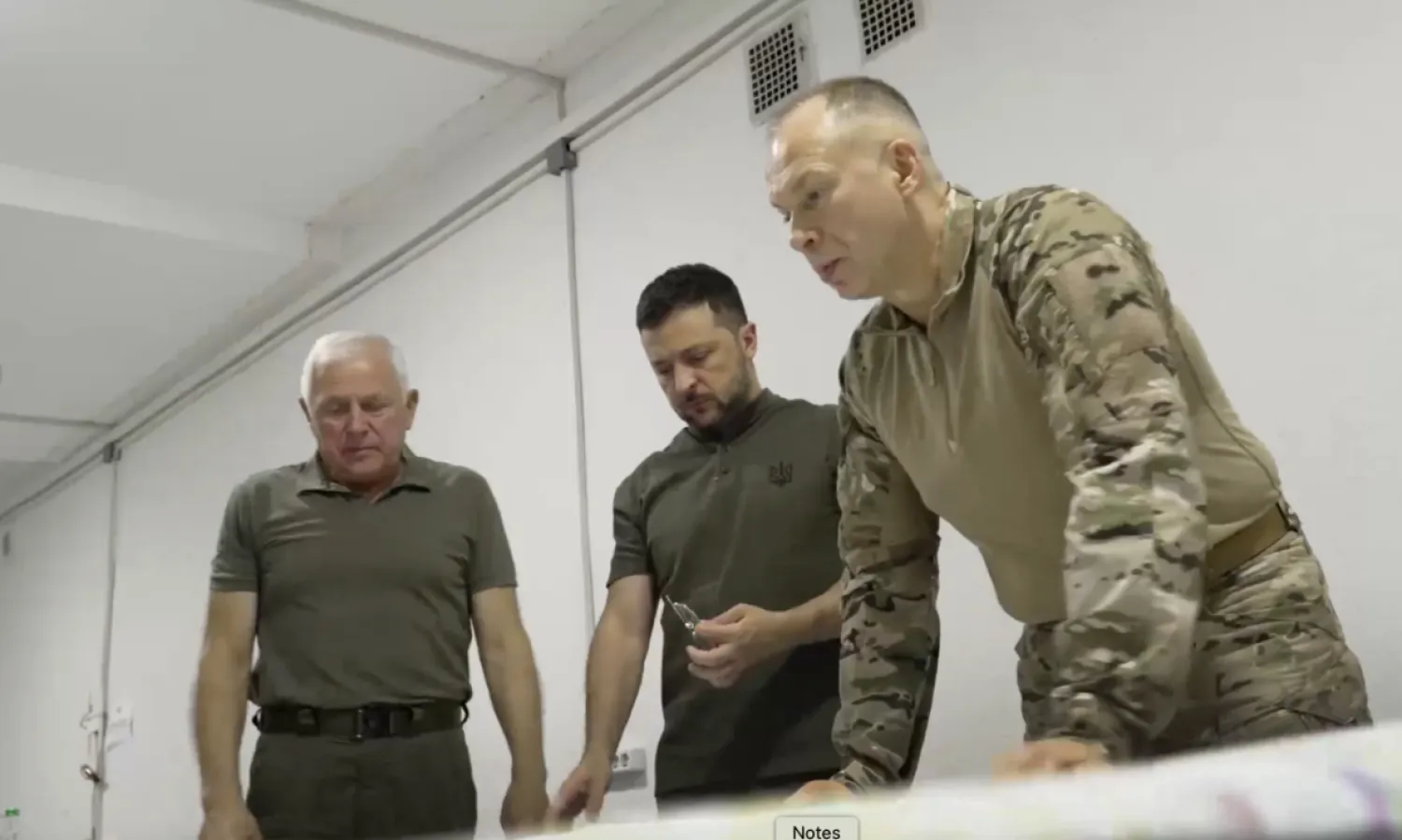President Volodymyr Zelenskyy toured the northeastern Ukrainian region of Sumy on Thursday in his first visit to the border area since his forces launched their surprise cross-border offensive more than two weeks ago, seizing dozens of Russian villages and the town of Sudhza.
Zelenskyy said Ukrainian forces have claimed control of another settlement in the Russian region of Kursk and taken more Russian prisoners of war whom he hopes to swap for captured Ukrainians, adding to what he calls an “exchange fund.”
“Another settlement in the Kursk region is now under Ukrainian control, and we have replenished the exchange fund,” Zelenskyy wrote on the social media platform X after hearing a report from the military commander, Col. Gen. Oleksandr Syrskyi.
While he traveled to an area close to the area of the Ukrainian incursion into Russia, he did not go into Russia itself — a move that would have been regarded by Moscow as a provocation. He has previously said that Ukraine has no plan to occupy the area long term but wants to create a buffer zone to prevent further attacks from that area into Ukraine.
After his meeting with local military authorities, Zelenskyy said the Kursk operation launched Aug. 6 has led to a decrease in Russian shelling and a reduction in civilian casualties in Ukraine’s northern Sumy region.
The daring Ukrainian foray into the Kursk region has rattled the Kremlin, showing Russia's vulnerability and shattered President Vladimir Putin's efforts to pretend that the country has been largely unaffected by the 2 1/2 year war, according to The AP.
Authorities in Kursk began to put up concrete shelters at bus stops and other locations around the city to protect it from shelling and plan similar work in Zheleznogorsk and Kurchatov, where the Kursk nuclear power plant is located, the region's acting Gov. Alexei Smirnov said on his Telegram channel.
Putin said in a video call with officials that he has ordered the creation of self-defense units in Russian regions bordering Ukraine.
Smirnov reported to Putin that over 133,000 people have left areas affected by the fighting in the Kursk region, while more than 19,000 have stayed.
The governor of Bryansk, another Russian region bordering Ukraine, said authorities in the region have conducted training for emergency evacuation from border areas in case it is needed.
Separately, the Defense Ministry reported repelling Ukrainian attacks near the villages of Komarovka, Malaya Loknya, Korenevka and several other settlements in the Kursk region.
Ukraine's capture of Russian territory comes as Ukraine continues to lose ground in eastern Ukraine. The Russian Defense Ministry said Thursday that its military has claimed control of the village of Mezhove in Donetsk, part of the industrial Donbas region which Moscow seeks to take entirely.
Ukraine's push into Russia marks the first capture of Russian territory since World War II.
It comes as both sides in the war use drones to attack far within enemy lines.
Ukraine attacked Russia overnight with 28 drones, Russia’s Ministry of Defense said. Thirteen were shot down over the Volgograd region, seven over the Rostov region, four over the Belgorod region, two over the Voronezh region, and one each over the Bryansk and Kursk regions, the ministry said.
Andrei Bocharov, governor of the Volgograd region, said Thursday that a military facility caught fire after being attacked by drones in the area of Marinovka where a Russian military air base is located. He did not specify what was damaged.
Videos shared on Russian social media showed an explosion in the night sky, reportedly near the base. Marinovka is about 300 kilometers (185 miles) east of the Ukrainian border.
Ukraine claimed responsibility for the attack.









